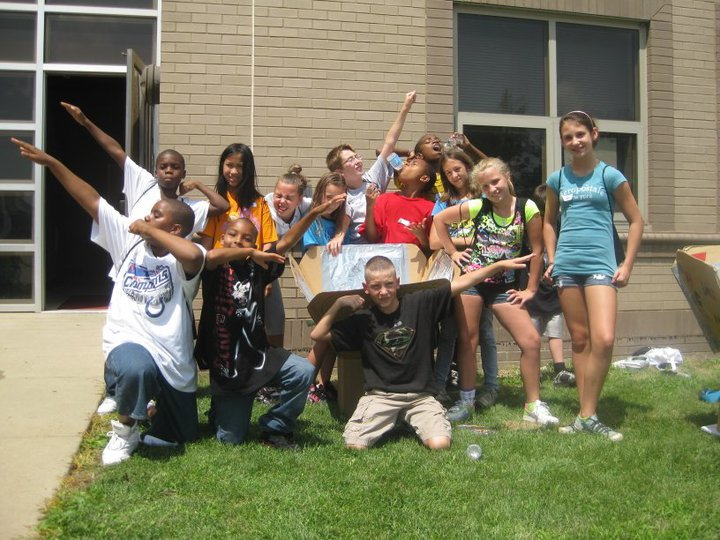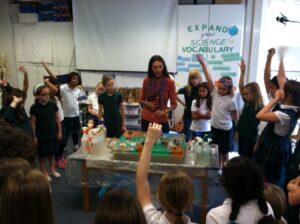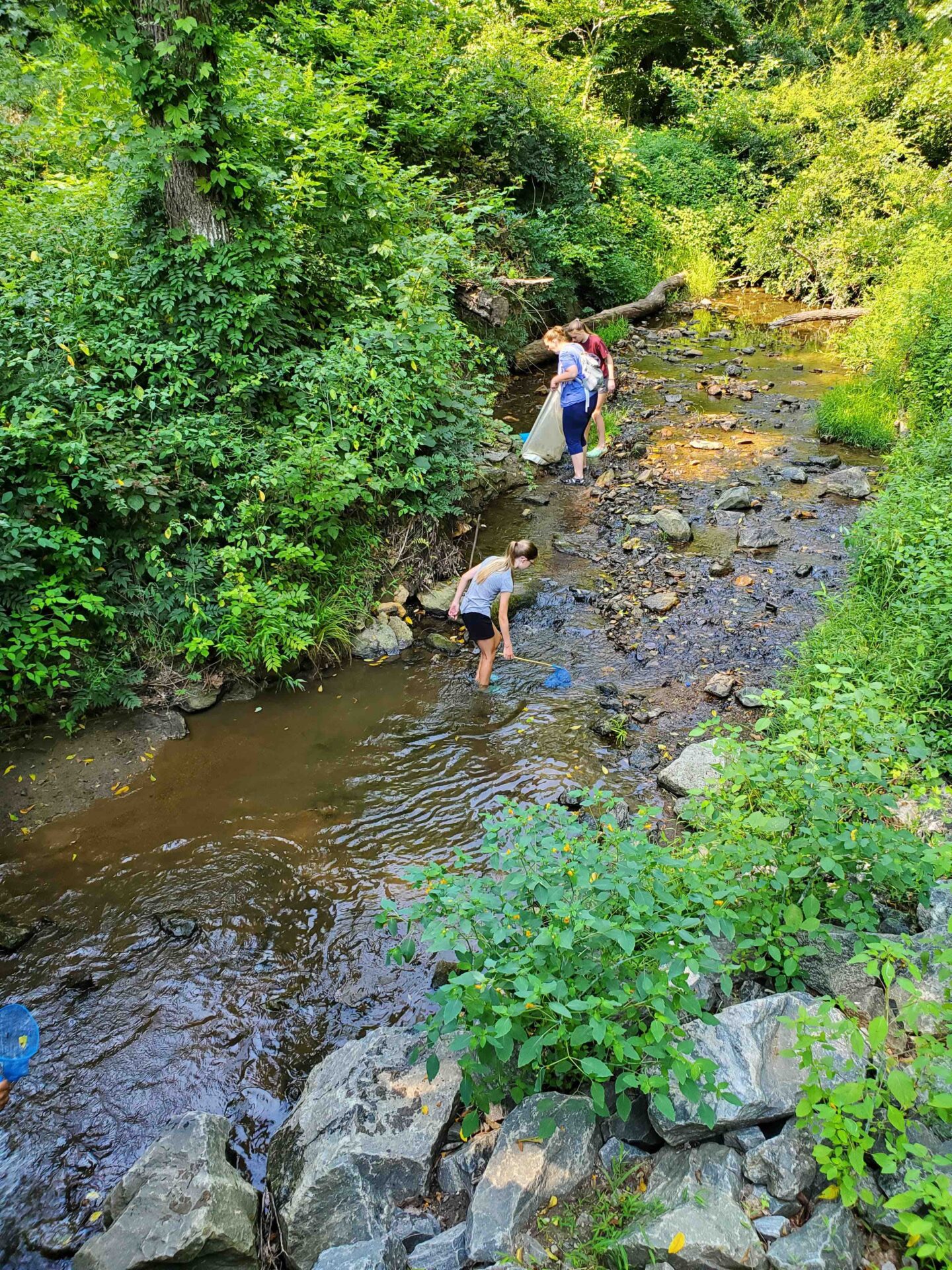Stream Stewards is a STEM based environmental education program for upper elementary, middle school, and high school students focusing on water quality. The program combines hands-on classroom lessons with real-world science though field trips to local streams where students collect macroinvertebrates and perform water chemistry tests to learn about the health of their local waterways.
Through interactive classroom lessons,
- Students learn about local waterways and examine how they are impacted by daily actions.
- Students use an EnviroScape model to observe how pollutants such as litter, oil, pesticides and sediment can be carried into local streams and creeks through stormwater runoff.
- Students learn how aquatic insects are used as indicators of water quality. Using identification keys and preserved samples of stream insects — such as mayfly, dragonfly and cranefly larvae — students practice identifying and classifying macroinvertbrates based on their tolerance to pollution.
Students then put their classroom lessons to use in local streams. Staff from PRC and Eastern Delaware County Stormwater Collaborative lead students on a field trip to Ridley Creek State Park where they conduct a stream health survey. Using kick nets and dip nets, students collect, identify, and release insect samples. Students also collect water samples and conduct basic water chemistry tests. By identifying the insects and analyzing data such as pH, dissolved oxygen, phosphate and nitrate levels, the students are able to form conclusions about the stream’s current health.



 Western In-School Programs
Western In-School Programs The Watershed Awareness Program is designed to inspire and inform students about watershed protection.
The Watershed Awareness Program is designed to inspire and inform students about watershed protection. PRC’s programs introduce participants to regional and global environmental issues and offer unique solutions easily addressed by students. PRC’s programs align with PA Department of Education standards for Environment & Ecology and Science & Technology as well as other relevant standards across the curriculum.
PRC’s programs introduce participants to regional and global environmental issues and offer unique solutions easily addressed by students. PRC’s programs align with PA Department of Education standards for Environment & Ecology and Science & Technology as well as other relevant standards across the curriculum.